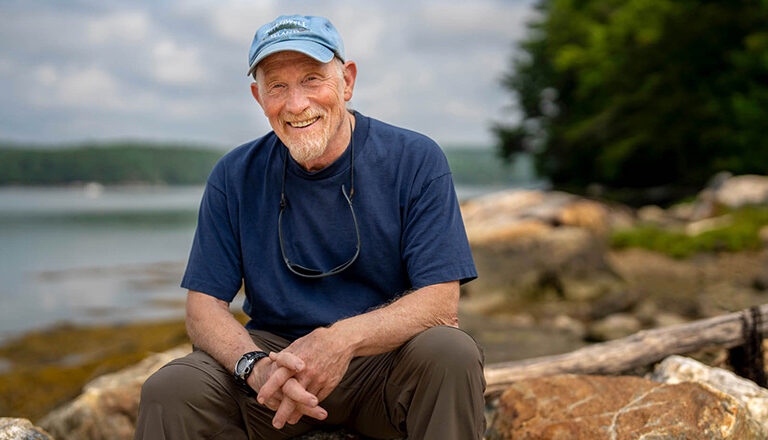Climate change arguably is one of the biggest challenges we face as a nation, as a world. It is a challenge that does not have a single solution, but requires us to deploy a wide range of actions to drastically reduce global warming, pollution, and to prepare for the climate changes we can no longer avoid.
It’s no surprise that we at the Bicycle Coalition of Maine (BCM) see biking and walking as climate solutions. While they are not the largest pieces of the emissions reduction pie, they allow us to chip away at emissions reductions while providing a wealth of co-benefits including improved health, greater connection to community, safer roads, more vibrant downtowns, and economic development.
Not to mention that expanding low-carbon transportation options will lift up those in our community who are unable to drive, do not have access to a car, or need a reliable way to get to a job, school, or other services.
Unlike investments in cars and car-centric infrastructure, investments in active transportation yield environmental, financial, health, and social benefits. Given that the average daily trip in Maine is five miles (including in rural parts of our state), active transportation is clearly the best investment. Nothing is cleaner, more affordable, more accessible, and therefore more equitable than walking and biking.
We were glad to see the latest recommendations to the Maine Climate Council include more active transportation (biking, walking, other mobility devices) elements than in the first round of the council’s plan. The BCM has been a member of the transportation working group of the council since its inception and played an active role in the process to update the recommendations.
Under the council’s “reduce vehicle miles traveled” strategy, several active transportation solutions were included that deserve a shout-out. The plan calls for expanding safe, active transportation options by improving options in villages and downtowns, paving shoulders along highways (principally in rural areas), and active transportation trail development. It also includes continuing and expanding pilot programs such as the electric bike program partnership for underserved individuals seeking transportation for employment and healthcare purposes and expanding the electric bike rebate.
However, the Maine Climate Council only recommends actions; they are not required by law. The Bicycle Coalition of Maine, partner organizations, and stakeholders will need to work tirelessly to ensure the implementation and funding of the active transportation initiatives outlined in the plan.
We need your help to make sure these good ideas don’t sit on a shelf and collect dust! Here are three steps you can take today:
• Share your comments on the recommendatons. You can comment on all sections or skip some; be sure to comment on the value and importance of robust, active transportation initiatives: Maine.gov/future/climate/council/workinggroups/2024strategies
• Tell your local and state elected officials that climate action is important to you, and you would like to see biking, walking, and transit be included in our action plans.
• Get involved with the Bicycle Coalition of Maine. Volunteer, become a member, and stay informed as we craft our policy goals for next year in collaboration with partner organizations: bikemaine.org.
Jean Sideris is executive director of the Bicycle Coalition of Maine, a statewide voice of cyclists and pedestrians since 1992, working to make Maine better for bicycling and walking by protecting the rights and safety of cyclists and pedestrians through education, advocacy, legislation, and encouragement.





